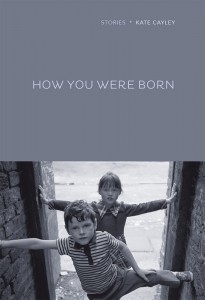July 7, 2015
No Rain
 I ran into someone last week who remarked upon photos of my family on Facebook which give the mostly-correct impression that we are good at spending our days. Though it’s not always the whole story, and I let her know about the weekend previous, when it rained for two days, all our plans got flooded, and I cried because the soup I made tasted just like dirt. She asked me why I don’t take pictures of that, or blog about it, and that’s a good question, but the answer is mostly, why bother? It was bad enough living through it once, so why on earth would I want to re-experience it by writing it down?
I ran into someone last week who remarked upon photos of my family on Facebook which give the mostly-correct impression that we are good at spending our days. Though it’s not always the whole story, and I let her know about the weekend previous, when it rained for two days, all our plans got flooded, and I cried because the soup I made tasted just like dirt. She asked me why I don’t take pictures of that, or blog about it, and that’s a good question, but the answer is mostly, why bother? It was bad enough living through it once, so why on earth would I want to re-experience it by writing it down?
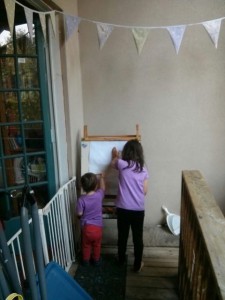 Whereas the last few days, summer proper, have been glorious. No rain. We had a very good week last week, adjusting well to school’s out. I love not having to schlep anyone out the door in the morning, and the day continues on apace. Harriet watches movies through Iris’s nap while I get some work done, and I begin the rest of my work once the kids go to bed, though the problem with this is that they’re going to bed later and later. But alas. I am also in love with our teenage babysitter, whose alarm at Iris eating dirt the other day was totally adorable.
Whereas the last few days, summer proper, have been glorious. No rain. We had a very good week last week, adjusting well to school’s out. I love not having to schlep anyone out the door in the morning, and the day continues on apace. Harriet watches movies through Iris’s nap while I get some work done, and I begin the rest of my work once the kids go to bed, though the problem with this is that they’re going to bed later and later. But alas. I am also in love with our teenage babysitter, whose alarm at Iris eating dirt the other day was totally adorable.
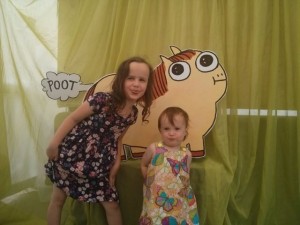 On Friday, we spent a morning at the park with friends, perfect weather, shaded by trees so we didn’t even have to apply sunscreen. The children played and got dirty while their mothers talked about books and writing, and life seemed very much in balance. On Saturday we had a busy day of Fringe Festival and then the book launch for Kate Beaton’s The Princess and the Pony at Little Island comics, which was fantastic. And that night we hung out on our friends’ amazing rooftop patio celebrating the 4th of July in the company of excellent Americans (3 out of 4 of whom were under 6). We went home before we’d drank too much so Sunday wouldn’t be a disaster.
On Friday, we spent a morning at the park with friends, perfect weather, shaded by trees so we didn’t even have to apply sunscreen. The children played and got dirty while their mothers talked about books and writing, and life seemed very much in balance. On Saturday we had a busy day of Fringe Festival and then the book launch for Kate Beaton’s The Princess and the Pony at Little Island comics, which was fantastic. And that night we hung out on our friends’ amazing rooftop patio celebrating the 4th of July in the company of excellent Americans (3 out of 4 of whom were under 6). We went home before we’d drank too much so Sunday wouldn’t be a disaster.
 And it wasn’t! The #SummerofRavines continued with an exploration of the St Clair Ravine, which was amazing, up through Mount Pleasant Cemetery and along the Beltline Trail to Oriole Park, which has a fantastic playground so the children were delighted. My secret plan is to trick them into liking nature rambles, and so far so good. We were even home again for nap, which is my definition of a proper kind of day. I spent Iris’s nap in the hammock revelling in wifi, putting the finishing touches on 49thShelf’s 2015 Fall Fiction Preview, which you can read here.
And it wasn’t! The #SummerofRavines continued with an exploration of the St Clair Ravine, which was amazing, up through Mount Pleasant Cemetery and along the Beltline Trail to Oriole Park, which has a fantastic playground so the children were delighted. My secret plan is to trick them into liking nature rambles, and so far so good. We were even home again for nap, which is my definition of a proper kind of day. I spent Iris’s nap in the hammock revelling in wifi, putting the finishing touches on 49thShelf’s 2015 Fall Fiction Preview, which you can read here.
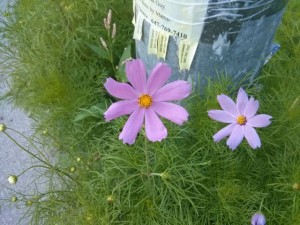 And now I have decamped for a few days visiting my parents in Peterborough, which is the first time I’ve ever done such a thing solo, so dependent am I upon my husband (who needs to stay home and go to work). This is the longest time we’ve been apart since 2003, which is kind of ridiculous, but I like our life this way. But on the other hand, it’s nice to know how much I’m capable on my own and also to have the experience of missing each other. It’s novel. The good news is that nobody threw up in the car, and also that we have a car, which means when I needed an emergency bookstore visit tonight to pick up a copy of The Folded Clock: A Diary, by Heidi Julavits, I was able to do so with alacrity.
And now I have decamped for a few days visiting my parents in Peterborough, which is the first time I’ve ever done such a thing solo, so dependent am I upon my husband (who needs to stay home and go to work). This is the longest time we’ve been apart since 2003, which is kind of ridiculous, but I like our life this way. But on the other hand, it’s nice to know how much I’m capable on my own and also to have the experience of missing each other. It’s novel. The good news is that nobody threw up in the car, and also that we have a car, which means when I needed an emergency bookstore visit tonight to pick up a copy of The Folded Clock: A Diary, by Heidi Julavits, I was able to do so with alacrity.
I’m now reading Look at Me, by Jennifer Egan, which feels summery to me because I read Goon Squad at the cottage a couple of years ago. It’s reminiscent of the later book, but a bit off-putting too, so I’ll be reading the Julavits alongside it. And yes, I get holiday book nostalgia a lot. I read Elizabeth McCracken’s amazing Thunderstruck last summer the day we came home from our cottage (I remember walking home from the subway reading the book once I’d dropped off our rental car) and now I’m yearning to read another of her books when we go away in a few weeks. I’ve got The Giant’s House and Niagara Falls All Over Again on order, one of which I’ll be reading along with rereads of Nora Ephron’s Heartburn and something by Laurie Colwin because I’ve been thinking a lot about funny, smart novel by women writers—the kind of book I want to write. So I’ll be reading for pleasure and also for inspiration.
July 5, 2015
I Take You, by Eliza Kennedy
 A few years ago, I wrote a blog post about the trouble with comic heroines, their forever blunders, self-deprecation and “one-downmanship”, and about how female characters are not often permitted access to what novelist Kate Christensen refers “an august tradition of hard-drinking, self-destructive, hilarious anti-heroes” ala Kingsley Amis’s Lucky Jim. Christensen was talking here about the protagonist of her first novel, In the Drink, a character who ended up being pegged as a not-quite-Bridget-Jones (without the sweetness)—it was the late ’90s after all. But nearly 20 years later, readers still don’t quite know what to do with a female counterpart to a character like Amis’s Lucky Jim—a character who messes up, isn’t necessarily loveable, and who doesn’t care if you don’t like it. A character like Lily Wilder, the hard-drinking, crazy-for-sex heroine of Eliza Kennedy’s debut novel, I Take You.
A few years ago, I wrote a blog post about the trouble with comic heroines, their forever blunders, self-deprecation and “one-downmanship”, and about how female characters are not often permitted access to what novelist Kate Christensen refers “an august tradition of hard-drinking, self-destructive, hilarious anti-heroes” ala Kingsley Amis’s Lucky Jim. Christensen was talking here about the protagonist of her first novel, In the Drink, a character who ended up being pegged as a not-quite-Bridget-Jones (without the sweetness)—it was the late ’90s after all. But nearly 20 years later, readers still don’t quite know what to do with a female counterpart to a character like Amis’s Lucky Jim—a character who messes up, isn’t necessarily loveable, and who doesn’t care if you don’t like it. A character like Lily Wilder, the hard-drinking, crazy-for-sex heroine of Eliza Kennedy’s debut novel, I Take You.
But I loved her. I did. Within the first few pages it is clear that Lily drinks too much, swears religiously, and has no compunction about casual sex as long as the sex is excellent, and it was all so refreshing. That she was a bit silly, but not stupid. That she was empowered, interesting, and nobody’s victim. Which is not to say that she hasn’t herself in quite a pickle as the novel begins: Lily is engaged to Mr. Wonderful—it’s been a whirlwind—and she’s pretty sure she even loves him, but she still can’t kick her habit of picking up men in bars and in elevators, and, well, everywhere. Lily wants to marry Will, because he’s a smart choice and Lily is wise enough to be in the habit of making these. But she doesn’t seem ready to become domesticated—and now the wedding is just days away.
The thing about Lily Wilder is that she’s happy. In fact, she insists upon her happiness, her value, which is rare with comic heroines. She is not a problem to be solved, and she doesn’t want to be fixed. She just wants to have it both ways—but how?
The story is set in Key West, Lily’s hometown, where she runs into a childhood friend with whom she has a complicated past. Her father, a dashing Lothario, is in town for the wedding, and so are all his ex-wives, plus Lily’s friends, and Will’s too—she accidentally sleeps with one of the groomsmen. So things aren’t at all straightforward even beyond the state of the forthcoming union, plus Lily has to do some work while she’s on her vacation, coaching a client for an upcoming deposition—her law firm is defending an oil company whose drilling explosion has caused massive devastation throughout the Gulf.
Madcap shenanigans ensue, with lots of smart writing, funny dialogue, and plenty of explicit sex—the prose is as shy as Lily is. The novel suffers from two problems, which seem somewhat incongruous—the first is that the political ramifications of the plots are heavily underlined in expository dialogue. I get that this is a huge revolution, a heroine who loves sex and is unabashed about it, that there is a massive double standard at work in which men get to be awesome for sleeping around but women get to be sluts. Though perhaps these underlinings would be helpful to a reader who is a little less unaware than I am. My second criticism is that the ending was a bit too neat, though the neatness was satisfying, but my eyebrows were just a little but raised.
But never mind, because I devoured this book in 24 hours, stayed up late reading, enjoyed myself immensely, and laughed out loud more than once. It’s a book that promised to be funny, and it really really was (although funny is subjective—Goodreads reviewers seem to disagree with me on this point, although it’s possible that they’re all idiots). It’s a book that surprised me, didn’t underestimate my intelligence, and dared to be different from almost every book I’ve ever read. A book that underlines also that women are complex, interesting people, and their comic heroines deserve to be just the same. And this one is.
I Take You is fantastic.
July 2, 2015
The Princess and the Pony by Kate Beaton
We’re all besotted, each of the four of us, who are aged from 2-36, but we’re confident that even those beyond our expansive age-range could find much to love in Kate Beaton’s debut picture book, The Princess and the Pony.
Because it’s got everything! Princesses, yes, and ponies, and farting, and burly Vikings married to powerful Amazons (and they hang celebratory bunting in their house). Knights and battles, and more farting, dodgeballs, spitballs, hairballs and squareballs (those were new). “In a kingdom of warriors, the smallest warrior was Princess Pinecone. And she was very excited for her birthday.” Is the beginning of a picture book that gets kids exactly right.
Not being a kid, the things I notice are a little bit different. Like that Princess Pinecone is mixed-race and that her mother looks like a Black Wonder Woman. I love the book’s acknowledgement that sometimes adults don’t get things right and that life can be disappointing. I love Princess Pinecone’s persistence, her optimism, her courage. I love that this is the least-gendered book called The Princess and the Pony ever.
The Princess and the Pony is a book that shows us that appearances can be deceiving, that power comes in many different forms, that most of us have a cuddly side, and that farts are the only thing we can ever really count on. But most importantly, it is ridiculously fun to read. Kate Beaton has followed up her runaway smash hit, Hark a Vagrant, with a book that’s only nominally for a different audience. Everybody’s going to like this one too.
We’re looking forward to seeing Kate Beaton at The Princess and the Pony Launch Party on Saturday! Details here.
July 2, 2015
Beyond the Pale by Emily Urquhart
 Emily Urquhart’s Beyond the Pale: Folklore, Family and the Mystery of Hidden Genes, is an interesting companion to Eula Biss’s On Immunity, both books inhabiting a fascinating creative space bridging science and lore, and underlining the expansiveness and importance of issues and ideas raised by motherhood. Both books also show the ways in which the experience of motherhood has a trajectory rich with unexpected directions, taking a mother to places she is rarely forecasting, not least of all at that pivotal, complicated, loaded moment when she sees her new baby for the first time.
Emily Urquhart’s Beyond the Pale: Folklore, Family and the Mystery of Hidden Genes, is an interesting companion to Eula Biss’s On Immunity, both books inhabiting a fascinating creative space bridging science and lore, and underlining the expansiveness and importance of issues and ideas raised by motherhood. Both books also show the ways in which the experience of motherhood has a trajectory rich with unexpected directions, taking a mother to places she is rarely forecasting, not least of all at that pivotal, complicated, loaded moment when she sees her new baby for the first time.
For Urquhart, that moment was especially loaded. Her daughter was born in St. John’s Newfoundland on Boxing Day 2010 with a crown of snow white hair. From all around the hospital, people came to see the baby with the unusual hair, and it all seemed quite natural to Urquhart, a scholar of folklore in which wondrous children are often born on ominous days and people come from all around to see. It soon becomes clear, however, that matters are more complicated, when doctors determine that Baby Sadie has albinism. While initially, this diagnosis is upsetting, being not what Urquhart had envisioned for her child—Sadie has vision problems, her skin is extremely sensitive to sun damage, Urquhart imagines the social difficulties Sadie will encounter in looking different from her peers—she and her husband embark upon their own journey toward understanding their daughter’s genetic condition and loving her difference (for it is a part of the person they love, after all). It’s a journey that takes them to North American Albinism conferences, to Tanzania to learn about organizations dedicated to assist children with albinism whose lives are threatened by witch doctors who use their body parts for “medicine,” and them back into Urquhart’s own family tree to learn the history of her daughter’s particular genetic makeup.
It’s a journey that Urquhart spends much of the time finding her way on, seeking answers to her questions, examining her feelings and perspectives, feeling a bit lost and overwhelmed, unsure and ill-at-ease. Which makes her an unusual commander of a literary ship, so used to are we of being guided by a voice that is large and confident. On one hand, this undermines the book a little bit—the depth and refinement of Urquhart’s thought is understated. And yet this quality distinguishes the book as well, that Urquhart shows her work, her process—here is a different kind of non-fiction, one reflecting a truer experience of one embarking out into the unknown. Like Maria Mutch’s mesmerizing Know the Night, Beyond the Pale is a parenting memoir that takes its reader deeper into the world.
July 1, 2015
A Little Lesson
Every time you make a garden, some asshole is going to come along and try to wreck it.
Which is only a reason to garden harder. Bring on the pollinators.
We continue to insist that the world is a beautiful place.
June 30, 2015
Summer Plans
 There was a while this weekend when summer plans weren’t looking good. On Saturday I made a soup that featured the uncanny flavour of actual dirt, which was devastating. And it rained and rained all day, and even the next day, so our plans to go for a hike were ruined. All melodrama heaped on by the fact I was premenstrual. We decided to go to the board game cafe instead of the hike, but when we got there, there was a sign on the door explaining that they were closed due to flooding. We ended up going out for schnitzel instead, which was kind of consoling, but the weekend was mostly disappointing all around, and the children reached a state of maximum solid gold 100 karat bonkers. By Sunday evening, Stuart had stopped telling me that he was jealous that I was the one who got to stay home with them all summer.
There was a while this weekend when summer plans weren’t looking good. On Saturday I made a soup that featured the uncanny flavour of actual dirt, which was devastating. And it rained and rained all day, and even the next day, so our plans to go for a hike were ruined. All melodrama heaped on by the fact I was premenstrual. We decided to go to the board game cafe instead of the hike, but when we got there, there was a sign on the door explaining that they were closed due to flooding. We ended up going out for schnitzel instead, which was kind of consoling, but the weekend was mostly disappointing all around, and the children reached a state of maximum solid gold 100 karat bonkers. By Sunday evening, Stuart had stopped telling me that he was jealous that I was the one who got to stay home with them all summer.
Fortunately when Monday arrived, it delivered the sun. We went to the park and built castles, moats and fortifying walls, which Iris wrecked and we tried not to get annoyed about. And then the girls practiced climbing, drawing on their inner-monkeys, all the while satisfying my agenda which was basically to get these children as exhausted as possible. Fresh air and physical exercise! Scurry up the play structure. Faster, faster, go! Which might turn out to be the theme of the summer entire, except for the afternoons when Iris naps, Harriet watches movies, and I get my work done. Everything slows right down at nap, and the challenge then is to strike a balance between the two. Between go and stop, between fun and relaxation, between doing stuff and doing nothing.
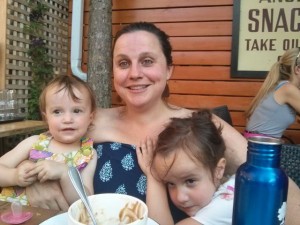 This summer, as with all summers, I become busier than usual just as my time disappears to the children being home and weekend getaways. And so the days are full, full, full, and I need to stop adding to the fullness by baking strawberry pies at 10pm because I end up staying up too late and the pie turns out looking like a bloodbath (even though it was very delicious). This summer is going to have to be about the store-bought pies, and hotdogs for supper, no more dirt soups and choosing my priorities. Which include meeting my deadlines, doing well at my work, not ignoring my children to the point of neglect, and hanging out with my husband (which is hard to do when the prime time of one’s workday begins at 9pm). To help with this, I’ve hired a babysitter one morning a week, and look forward to that solid block of three hours to work, which will feel positively luxurious as it goes by so fast.
This summer, as with all summers, I become busier than usual just as my time disappears to the children being home and weekend getaways. And so the days are full, full, full, and I need to stop adding to the fullness by baking strawberry pies at 10pm because I end up staying up too late and the pie turns out looking like a bloodbath (even though it was very delicious). This summer is going to have to be about the store-bought pies, and hotdogs for supper, no more dirt soups and choosing my priorities. Which include meeting my deadlines, doing well at my work, not ignoring my children to the point of neglect, and hanging out with my husband (which is hard to do when the prime time of one’s workday begins at 9pm). To help with this, I’ve hired a babysitter one morning a week, and look forward to that solid block of three hours to work, which will feel positively luxurious as it goes by so fast.
But it won’t go by as fast as the summer itself will seem to, which is the lesson I learned last year. I really do like being home with my kids, providing I get ample time to do my own thing during our days, and I feel really lucky that my home and professional lives merge so seamlessly. When the children (both of them! I know!) head off to school in September, I will miss them dreadfully…even as I begin to delight working in the daytime and the possibility of evenings of leisure (a stretch, perhaps).
So in the meantime, we’ll be visiting the library, reading books together, hanging out with friends, going to visit my parents, frequenting local cafes, Harriet will be doing a few daycamps, Iris will be taking long naps (I hope!), and I will be doing my darnedest to tire them out so that bedtime occurs before 9pm. We’ll be spending a week away at a cottage, a long weekend camping, and we’re looking forward to fun weekend adventures in the city too. Plus spitting watermelon seeds, wading in local pools, forgetting to put on sunscreen, and gathering our freckles while we may.
- See Rebecca Woolf’s “Surviving Summer as a Work-From-Homer Part 2: LOL Boogaloo“
June 28, 2015
How You Were Born by Kate Cayley
When I was away last weekend, Kate Cayley’s story collection, How You Were Born, was an ideal literary companion. Slimish, perfectly packaged, each story its own realized vision. Its effect more muted and subtle than Rhonda Douglas’s Welcome to the Circus, another short story collection I’ve loved lately, but still—so very good. Which is important when one is away from home and hoping for reading as excellent as one’s surroundings—the kind of thing you mustn’t get wrong. When our mini-break was over, I could underline its success by the fact that I’d managed to nearly get a whole book read, and I am glad that it was this one.
Kate Cayley is a playwright, poet, prize-winning YA author, and now, with How You Were Born, recipient of the Trillium Book Award. The day the book took the prize, I received my copy in the mail from All Lit Up, which technically means that I liked this book before it was so extraordinary lauded (and therefore am cool and a tastemaker), but one might have expected as much from Cayley. Though it’s worth noting that How You Were Born beat out novels by Margaret Atwood and Thomas King for the prize. Perhaps they should put that on a sticker and slap it on the cover.
It has been interesting to read these stories, many of which are about Queer family life, sandwiched between Maggie Nelson’s The Argonauts and Ann-Marie MacDonald’s Adult Onset, which tell of the same. In Cayley’s first story, “Resemblance,” two women and their daughter travel to visit the mother of the girl’s biological father, who is recently deceased. The ending is quiet, ambiguous and uncomfortable as these people consider the weight and meaning of their connections. “The Summer the Neighbours Were Nazis” is spun from the most marvellous beginning: “My brother Richard was odd. By the time he was twelve my mother yearned for a diagnosis, but he was just odd.” A brother and sister spend their days high up in the backyard birch tree observing their eccentric neighbours, and the sister comes in sight of her own mother’s struggles and powerlessness: “My mother…was more like Richard than she knew.”
In “Stain,” a man attending a wedding weekend meets up with a woman he’d briefly encountered years ago in 2001 at the anti-capitalist protests in Quebec City. In “Midway, Midgets and Giants, Photograph 1914,” a two-feet-seven-inch tall circus performer reads of the legendary romance between Tom Thumb and Lavinia Warren, their wedding presided over by PT Barnum, and scans the crowds looking for her true love in the stands. And then a different turn altogether with “Fetch,” in which a man who supposes that his double has moved in next door, a harbinger of death, and responds as rationally as you might expect. “Acrobat” has a similar tone to “The Summer the Neighbours Were Nazis”, about a lonely girl who is new in town and partakes in an informal acrobatic circus, and learns something fundamental truth about herself in the story’s final moment.
In “Long Term Care,” things get complicated when an elderly father is moved into an assisted living unit, and his daughter fears that he is imagining himself back in Buchenwald, where he was traumatized in his youth. The blind protagonist of “Blind Poet” has a fleeting affair with an artist, the story tied up on classical allusion. “Young Hennerly” is a story and also the title of a creepy song sung to a folklorist collecting stories of residents of the mountains of West Virginia who finds the borders between life and myth begin to blur. In the Alice Munrovian “Boys,” a man finds himself responsible for his cousin who has always been a bit different, and whose own behaviour with young boys skirts the line between innocent and otherwise. And in the title story, a woman tells her child, about the sides and allegiances of motherhood, and of daring the “gamble” of bringing a child into the world.
June 24, 2015
Mini Review: In the Unlikely Event by Judy Blume
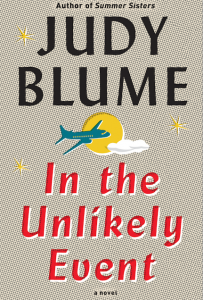 In this book about a teenage girl growing up in the ’50s in Elizabeth, New Jersey, I was kind of hoping for the sequel to Starring Sally J. Freedman as Herself, which Judy Blume has called her most autobiographical work and which has dark and deep undertones more so than even a book like Tiger Eyes. In some ways though In the Unlikely Event feels less deep than Sally, though it deals with a situation particular and tragic. In 1951 and 1952, three planes crashed in three months in Elizabeth, something Blume herself lived through and reimagines in her new novel, her first for adults since Summer Sisters. The novel is told from a slew of perspectives, some of them just a few paragraphs long each, and also in fictional newspaper accounts. The centre of the book is the character Miri who is just 15 and embarking upon her first romance when she and those around her bear witness to the destruction and devastation of the crashing planes. PTSD wasn’t something anybody imagined at the time, and so Miri and her friends and family (and other characters on the periphery of their lives) are urged to just get on with things, their trauma manifesting in various ways. And while Blume attempts an allegory in which the plane crashes stand in for the more recent terrorist attacks on the World Trade Centre in 2001, more than anything the novel is a soap opera. The tragedies cast characters’ lives in new lights and they’re driven to impulsive acts outside their usual frames of experiences, which makes for interesting reading for the most part, if it dwells on junior high school drama a bit too much (as well as a curious bit in which a character is possessed by the spirit of a dancer who died in the first crash). If you’re complaining about too much junior high drama though, perhaps you shouldn’t be reading Judy Blume, which is fair enough, but then the adult story-lines were so interesting and (SPOILERS!) what happened on page 320 had me gasping in horror—more of that please! More than anything though, a new book by Judy Blume is an event, and I’m glad to have been part of it. We’re now upon the season such books were made for after all. But while the novel tied up tidily, it left me a little unsatisfied and I don’t think I’m going to feel better until I’ve gone back and read Sally again.
In this book about a teenage girl growing up in the ’50s in Elizabeth, New Jersey, I was kind of hoping for the sequel to Starring Sally J. Freedman as Herself, which Judy Blume has called her most autobiographical work and which has dark and deep undertones more so than even a book like Tiger Eyes. In some ways though In the Unlikely Event feels less deep than Sally, though it deals with a situation particular and tragic. In 1951 and 1952, three planes crashed in three months in Elizabeth, something Blume herself lived through and reimagines in her new novel, her first for adults since Summer Sisters. The novel is told from a slew of perspectives, some of them just a few paragraphs long each, and also in fictional newspaper accounts. The centre of the book is the character Miri who is just 15 and embarking upon her first romance when she and those around her bear witness to the destruction and devastation of the crashing planes. PTSD wasn’t something anybody imagined at the time, and so Miri and her friends and family (and other characters on the periphery of their lives) are urged to just get on with things, their trauma manifesting in various ways. And while Blume attempts an allegory in which the plane crashes stand in for the more recent terrorist attacks on the World Trade Centre in 2001, more than anything the novel is a soap opera. The tragedies cast characters’ lives in new lights and they’re driven to impulsive acts outside their usual frames of experiences, which makes for interesting reading for the most part, if it dwells on junior high school drama a bit too much (as well as a curious bit in which a character is possessed by the spirit of a dancer who died in the first crash). If you’re complaining about too much junior high drama though, perhaps you shouldn’t be reading Judy Blume, which is fair enough, but then the adult story-lines were so interesting and (SPOILERS!) what happened on page 320 had me gasping in horror—more of that please! More than anything though, a new book by Judy Blume is an event, and I’m glad to have been part of it. We’re now upon the season such books were made for after all. But while the novel tied up tidily, it left me a little unsatisfied and I don’t think I’m going to feel better until I’ve gone back and read Sally again.
June 23, 2015
Blooms
 Harriet has two days left of kindergarten, and we’re excited for the summer that lies ahead. And then after that: Grade One. A whole new door and a new way of life, in that her class won’t have a sand table or a drama centre. Really, is this blog not just a record of my heart breaking over and over again? And parenthood in general. How they just keep growing, going. And I remember nearly two years ago when Harriet started kindergarten and for an entire month cried every day at drop-off, and it was all really terrible. We had a new baby and Stuart had just gone back to work, which was part of the problem, and then Harriet used to cry after school because her teacher wasn’t as good as Daddy, and I hadn’t expected these bumps in the road. “She’ll be okay,” all the parents told me when I left her in the morning and I was crying too, my tiny sleeping baby strapped to my chest. I wasn’t sure, but they were right, and kindergarten has since been a wonderful ride. Since Christmas in particular, Harriet seems to have found her stride socially too, plus she has learned to read and she can write, and she’s happy, which is most important. I feel lucky that it’s all been so smooth, and part of that is that her teachers this year have been incredible.
Harriet has two days left of kindergarten, and we’re excited for the summer that lies ahead. And then after that: Grade One. A whole new door and a new way of life, in that her class won’t have a sand table or a drama centre. Really, is this blog not just a record of my heart breaking over and over again? And parenthood in general. How they just keep growing, going. And I remember nearly two years ago when Harriet started kindergarten and for an entire month cried every day at drop-off, and it was all really terrible. We had a new baby and Stuart had just gone back to work, which was part of the problem, and then Harriet used to cry after school because her teacher wasn’t as good as Daddy, and I hadn’t expected these bumps in the road. “She’ll be okay,” all the parents told me when I left her in the morning and I was crying too, my tiny sleeping baby strapped to my chest. I wasn’t sure, but they were right, and kindergarten has since been a wonderful ride. Since Christmas in particular, Harriet seems to have found her stride socially too, plus she has learned to read and she can write, and she’s happy, which is most important. I feel lucky that it’s all been so smooth, and part of that is that her teachers this year have been incredible.
One of them is her same teacher from last year, when she was in junior kindergarten half-days. A fantastic teacher who turned out to be almost as good as Daddy after all, just in his own way. He has taught her more than I could ever quantify, and the most fundamental things. Their class planted marigolds at the end of last year and Harriet’s grew in a pot in our garden over the summer, blooms upon blooms. We decided to save the seeds, which we’d never done before, and we planted them this spring, offspring of the plant before. Three of those seeds managed not to be dug up by squirrels and actually grew, and we took one of them to school in its own pot today to present to her teacher. A symbol of what he does every day, every year, planting seeds that take root and grow, and yield seeds of their own, and new things grow of that and on it goes forever and ever. He only ever sees the smallest part of the effect he has.
I love teachers. Part of this is basically my religion—there is no single more important job in the world—but it’s also because the ones we’ve had so far have been fantastic. And we’re going to miss Mr. Gillis so much. Nothing ever would have flowered without him.






